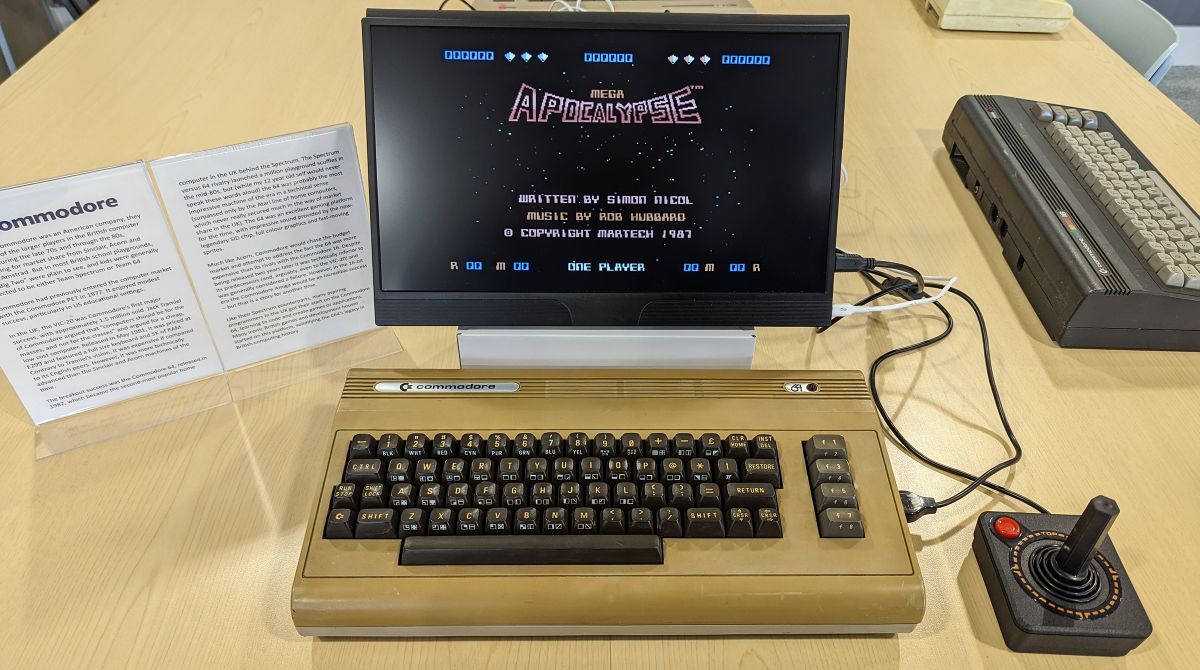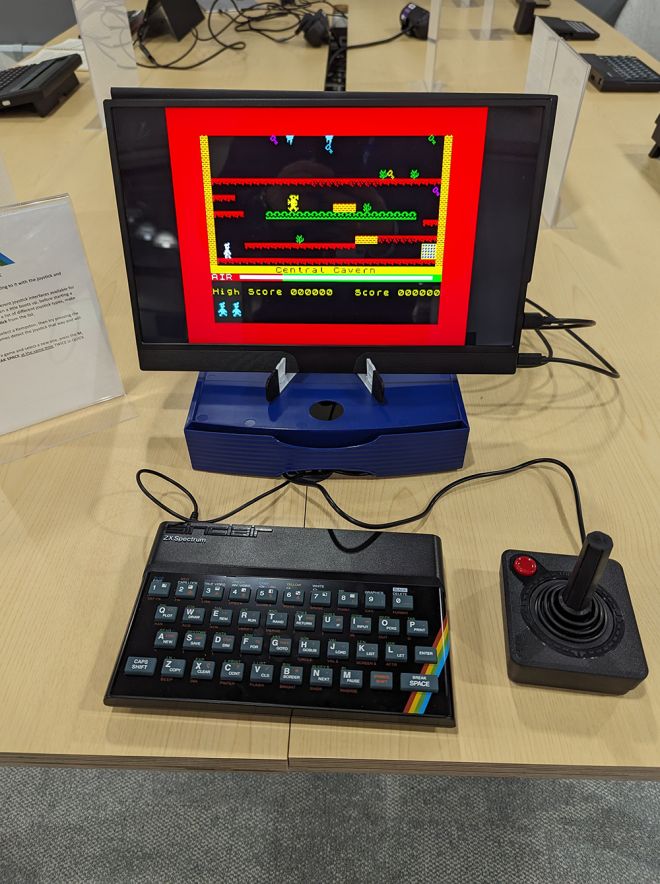World's first microcomputer goes on display alongside range of other vintage computers in public exhibition at Kingston University
Posted Tuesday 13 February 2024

The world’s first true microcomputer – the Q1 – has been back in the spotlight at a special public exhibition at Kingston University showcasing the early decades of computing. The exhibition, entitled Creating the Everything Device, featured more than 60 computers from the 1970s, 1980s and 1990s – all predecessors of today’s modern technology.
Two Q1 microcomputers, considered the first true microcomputer and the first to be commercially produced, were on show at the exhibition. Manufactured by the Q1 Corporation in the United States in December 1972, only a few Q1s were imported into Britain. It is believed the two on display in the exhibition, a Q1 Lite and Microlite from around the mid-1970s, could be the only surviving models in the country.
“It was a real bonus being able to feature two Q1s – the world’s earliest microcomputers," senior lecturer and course leader of the University's undergraduate computer science programme, Paul Neve, an expert in early computers, said.
“The early pioneers in the 1970s and 1980s laid the foundation for today’s everything device – the modern computer now so ubiquitous in everyday life. We rely on computers for our work, communication, productivity and entertainment, but without the early trailblazers none of these would exist. There would be no PCs, no Macs and no Apple or Android phones without Q1 Corporation, Sinclair and Acorn.”
More than 60 different computers and gaming machines, some first-generation including Atari, Sinclair ZX81, ZX Spectrum, Sinclair QL, BBC Micro, Acorn Electron, Amstrad, Commodore and the Dragon 32 were on display at the exhibition.
Some were operational and visitors were able to play classic computer games of the era, many from companies that eventually became today’s gaming powerhouses, such as Activision and Rare. Visitors were also able to try their hand at coding and use productivity software from the era.
Creating the Everything Device was curated by Mr Neve and Dr Islam Choudhury, also from the University's Department of Computer Science, in association with national house clearance company Just Clear, which has its headquarters in Kingston. Several of the archive computers on display have been collected by Just Clear.
“In the course of our clearance work, we often discover remarkable items, including many old computers and intriguing artifacts with historical significance," Just Clear chief executive officer Brendan O’Shea said.
“Every year, our sustainable clearance teams collect thousands of computers from homes and businesses nationwide. Occasionally, we encounter items deemed important enough to preserve and archive for the future. A few of these rare finds, such as the ultra-rare Q1 and a silver label Commodore 64, are featured in this exhibition.”
The exhibition was formally opened by the Mayor and Deputy Mayor of the Royal Borough of Kingston, Councillors Diane White and Richard Thorpe. Members of the public were able to view the exhibits at the University’s Penrhyn Road campus in February.
- Find out more about studying computer science at Kingston University.
- This article has been updated. Many thanks to Peter Andersen for his input.